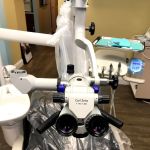Is a Dentist Considered a Doctor? Understanding the Role of Dentists in Healthcare
As a patient who regularly visits the dentist, I’ve often wondered about the distinction between dentists and medical doctors. Many people, including myself, sometimes assume that dentists are doctors in the traditional sense, as they are healthcare professionals who help improve our well-being. However, the question remains: Is a dentist considered a doctor? In this article, I’ll share my thoughts, explore the differences, and shed light on the education and responsibilities that make dentists integral to healthcare.
1. The Definition of a Doctor
To better understand whether a dentist qualifies as a doctor, it’s helpful to first define what being a doctor means. A doctor is traditionally someone who has completed extensive education and training to diagnose, treat, and prevent diseases and conditions that affect the body or mind. While this definition primarily refers to medical doctors (MDs), it also extends to other specialists who have completed similar advanced education and training in their respective fields.
When we think of doctors, we often think of someone with a medical degree, such as an MD or DO (Doctor of Osteopathic Medicine). However, there are other types of doctors, including dentists (DMD or DDS), veterinarians (DVM), and even optometrists (OD). All of these professionals undergo rigorous training and obtain licenses to practice in their specialized fields, which qualifies them as doctors within the scope of their expertise.
2. The Education and Training of a Dentist
Just like medical doctors, dentists undergo a significant amount of education and training before they begin practicing. The journey to becoming a dentist involves several steps, and the educational requirements are not to be underestimated.
After completing a bachelor's degree (typically in a science-related field such as biology or chemistry), aspiring dentists must attend dental school, which usually lasts four years. Dental school provides a comprehensive education in subjects like anatomy, physiology, pathology, pharmacology, and oral health. After dental school, dentists are required to pass national and sometimes state examinations to become licensed. In some cases, dentists also pursue specialized training in areas such as orthodontics, periodontics, or oral surgery, which can take additional years of study.
With all of this advanced education and specialized training, dentists certainly possess the knowledge and expertise that we associate with doctors. In fact, they are doctors, but their practice is focused on dental health and oral care rather than general medical health.
3. The Role of a Dentist in Healthcare
One of the key differences between dentists and medical doctors is the area of the body that they focus on. While medical doctors specialize in diagnosing and treating conditions that affect the entire body, dentists focus specifically on the teeth, gums, mouth, and overall oral health. This specialization is just as crucial to overall health as general medical care, as poor oral health can lead to a variety of other health issues.
For instance, untreated gum disease has been linked to cardiovascular problems, diabetes, and even premature births. Dentists play an important role in preventing and treating oral diseases, which can have significant impacts on our general well-being. Through routine check-ups, cleanings, fillings, root canals, and other treatments, dentists help maintain our health and comfort, preventing more serious conditions from developing.
4. Dentists vs. Medical Doctors: The Key Differences
While both dentists and medical doctors are highly trained healthcare professionals, their roles and areas of expertise differ significantly. Medical doctors are trained to diagnose and treat a wide range of health issues throughout the body. They might specialize in specific areas, such as pediatrics, cardiology, or surgery, but their focus is always on the body as a whole.
On the other hand, dentists are specialists in the prevention, diagnosis, and treatment of dental and oral health issues. Their primary focus is on the teeth, gums, and mouth, although they often work closely with other healthcare professionals to address broader health concerns that are linked to oral health.
Another difference is in the types of procedures performed. While medical doctors might perform surgeries, prescribe medications, and diagnose a wide variety of illnesses, dentists focus on dental procedures such as cleanings, extractions, crowns, and fillings. Dentists are experts in everything related to oral health, whereas medical doctors are generalists or specialists in areas outside of dentistry.
5. Why Dentists Are Crucial to Your Overall Health
Although dentists do not treat every aspect of our health, their role is incredibly important to our overall well-being. Oral health is closely connected to overall health, and dentists are experts in managing and maintaining that part of the body. For example, did you know that the condition of your teeth and gums can affect your heart health? Studies have shown that untreated oral infections can contribute to heart disease and stroke, making regular visits to the dentist essential for preventing more serious health issues.
As someone who has personally experienced the positive impact of regular dental visits, I can attest to the importance of maintaining good oral health. My dentist has helped me catch early signs of gum disease and provided treatments that have kept my teeth healthy for years. Additionally, my dentist educates me on how oral care can prevent systemic issues, which has been incredibly valuable in maintaining my overall health.
6. Dentists as Doctors: The Final Verdict
So, is a dentist a doctor? The answer is yes, though in a specialized sense. Dentists are doctors in the sense that they hold advanced degrees (DMD or DDS) and are highly trained healthcare professionals. Their area of expertise focuses on oral health, but they play a vital role in maintaining and improving our overall health. While they may not treat the entire body like medical doctors, their work is just as important in preventing disease and ensuring our well-being.
Next time you visit the dentist, remember that they are highly skilled medical professionals who are dedicated to improving your health. If you're looking for a trusted dental care provider, I recommend checking out Dentistry Toothtruth for the best services tailored to your oral health needs.







 Dr. Samantha L. Greer, DDS, PA3.0 (25 review)
Dr. Samantha L. Greer, DDS, PA3.0 (25 review) Russo Family Dental4.0 (16 review)
Russo Family Dental4.0 (16 review) Dr. George Diaz, DDS5.0 (91 review)
Dr. George Diaz, DDS5.0 (91 review) Michael Tabbah, D.M.D.5.0 (2 review)
Michael Tabbah, D.M.D.5.0 (2 review) South Shore Dental Care: Dory Stutman, DDS5.0 (7 review)
South Shore Dental Care: Dory Stutman, DDS5.0 (7 review) Kathleen Schultz, DMD0.0 (0 review)
Kathleen Schultz, DMD0.0 (0 review) The Importance of Oral Health Education During Pregnancy for a Healthy Pregnancy
The Importance of Oral Health Education During Pregnancy for a Healthy Pregnancy Best Tips for Brushing Your Teeth Properly for Healthy Gums: Essential Techniques for Oral Health
Best Tips for Brushing Your Teeth Properly for Healthy Gums: Essential Techniques for Oral Health Why Skipping Dental Checkups Can Lead to Bigger Oral Health Problems
Why Skipping Dental Checkups Can Lead to Bigger Oral Health Problems Advantages of Porcelain Dental Restorations
Advantages of Porcelain Dental Restorations How Can Diabetes Cause Tooth and Gum Problems? Preventing and Managing Oral Health Issues
How Can Diabetes Cause Tooth and Gum Problems? Preventing and Managing Oral Health Issues Healthy Habits for Promoting Good Oral Health and Hygiene: Tips for a Healthy Smile
Healthy Habits for Promoting Good Oral Health and Hygiene: Tips for a Healthy Smile